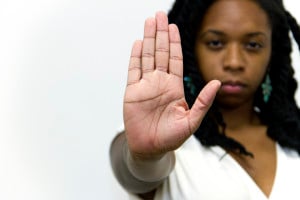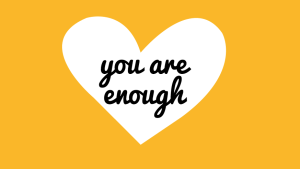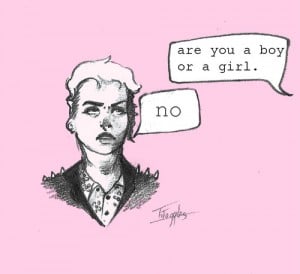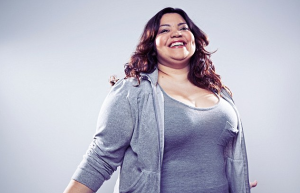
Credit: NHS
The guy says an offhand remark.
“Screw you,” she yells, pinching his balls under the table.
They take it out onto the street. She screams, “I can’t believe you right now. You’re an idiot.”
Or how about: There’s a line of fifteen people waiting for the bathroom as a girl saunters to the front and walks right in after the door opens. Everyone exchanges glances.
The girl’s friend says, “Deal with it. It already happened.” The entire line glares at the friend. Then, as the girl walks out, she receives nothing but snide remarks and death stares.
At least somewhat familiar, right? You can probably think of a handful of similar situations yourself, where people react inappropriately to their anger, making others unnecessarily uncomfortable.
In fact, you’ve probably done it yourself. We all get ticked off, and our feelings get hurt — not only by ones we love, but also by total strangers.
And that emotion is fine and healthy.
Behavior, however, we should be more thoughtful about.
The question isn’t about whether or not your feelings are valid – because they are. But rather: Is there a healthier way to respond? How do we react to these triggers without hurting others and ourselves?
Anger is a perfectly normal, healthy human emotion. But what you do with that anger can be hurtful or harmful.
Here are some ways to identify our go-to reactions so that we can better prepare ourselves to make choices when it comes to our expressions of anger and anxiety. Because the first step to fixing a problem is to admit there is one, right?
Identify Your Response
For a long time, when I was upset, my natural reaction was to go into hiding mode. Whenever anyone asked what was wrong, I’d say that it was nothing.
This was pretty much how I responded to hurt in high school and college. I’d bottle up whatever it was that was bothering me, and I’d turn to passive-aggressive behavior that was damaging to others, but more so to myself.
While I was passive-aggressive, I had friends who would get angry and yell. Others would just take off and head for the hills. You probably know people who do these things, too. You probably do one of these things.
And that’s because attack, leave, and hide are all common responses to triggers.
Attack
The gut reaction here is to get righteous and aggressive. To gossip. To blame the issue on someone else. To project your thoughts onto others and act out.
Someone said something, so you feel like you have to say something back.
You jump right in.
Leave
The response here is to stop communicating.
If something is upsetting, you push it away. You’re out the door. Gone.
You don’t want to deal with it. It’s not your responsibility.
It’s basically a screw you kind of attitude.
Retreat
When you’re upset, you react by lying or maybe by pretending that everything is fine.
You become the victim.
You bottle up your emotions and become passive-aggressive.
The truth is: None of these reactions is necessarily bad. Because we’re human, we’re always going to react in some form or another. But the best way to keep it healthy is just to think before you react.
Before you fly off the handle, run out the door, or bury your feelings, take a pause. Stop. Breathe. Close your eyes and visualize something that makes you calm. Take as many moments as you need in order to get to a good place.
Then, once your heartbeat has returned to normal, you can take stock of the situation and address it.
Choose Your Reaction
When something upsets me, I stop and breathe before I do anything else.
Then, once I get past the initial trigger, I ask myself the following questions: How do I want to handle this situation? What is the truth of the situation?
I mentioned in another post that I’m the girl who used to scream “shit” any time that I dropped something. Whether it was a big Pyrex dish or a rubber band, my reaction was the same. Everything was a crisis — even when it wasn’t.
What I had to start identifying was what warranted a true reaction and what didn’t. Dropping a Pyrex or even a rubber band doesn’t merit the same reaction as, say, someone telling me that I’m selfish or unattractive.
It’s important to take stock of the situation to decide if the matter is something to truly be upset by in the first place.
Taking myself out of the equation, detaching from whatever originally triggered me, is a way to gain perspective.
Sometimes if someone says something that offends me, I excuse myself to the bathroom.
I look in the mirror and ask: Why are you upset? What about this situation is bothering you? What type of reaction does this deserve, if any at all? Am I taking things too seriously, personally? Do I need to lighten up?
Then I remind myself that if I’m going to respond verbally, that I need to do so mindfully.
Deepak Chopra once said, “Every time you are tempted to react in the same old way, ask if you want to be a prisoner of the past or a pioneer of the future.”
It’s a quote that I memorized because it helps me to think, feel, and choose when I’m confronted with a trigger, rather than just reacting.
And while the above may sound like work – because it is – the more you make it a habit to take an adult time-out after you’ve been emotionally triggered, you’ll notice that choosing how to react is your power in the situation.
Feel the feelings, but don’t let them highjack your actions.
Want to discuss this further? Login to our online forum and start a post! If you’re not already registered as a forum user, please register first here.
Cynthia Kane is a Contributing Writer at Everyday Feminism. Cynthia Kane is a Contributing Writer for Everyday Feminism. Over the last year and a half, she’s relearned the following: how to jump up and down when she’s happy, cry when she’s sad, laugh when something’s funny, take a compliment, smile at strangers, and be open to the fact that everyone is going through it all the time. For more, visit her website or follow her on Twitter @cynkane. Read her articles here.
Search our 3000+ articles!
Read our articles about:
Our online racial justice training
Used by hundreds of universities, non-profits, and businesses.
Click to learn more




















